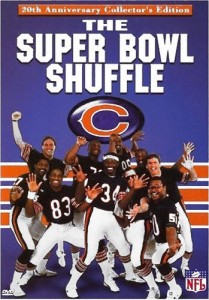HTMLXYLOPHONE: Mayke Things Mayke Things Mayke Things
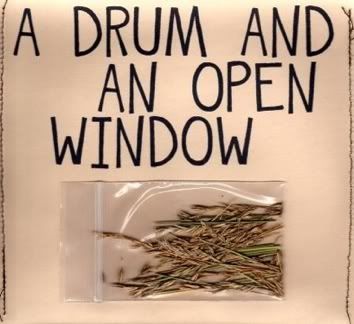
“Make Things” – A Drum and An Open Window (mp3)
When I am run down and flocked around by the world, I go into iTunes and play this song by A Drum and An Open Window. I met them through my friend Jordaan, and they played a show in Oroville, CA with me the summer before I moved to Massachusetts. We skipped rocks and visited the Chinese Temple, stayed up in Ryan’s apartment keeping Whisper awake and singing with both Ryans, including the backhoe driver. Dustin was driving and making all his money through poker, mostly online. Andrew wanted to go to Europe, and Ashley had a radio show.
when it’s dark i’ll write some new songs
This song is really twee, to which I’m like, well: either life really is holy with meaning and that’s coming up, your scuffle with that, or life is just a place to keep your bones for a while, which you’re going to handle by moving them a little and then moving them some more.
Reap the Willow Weep
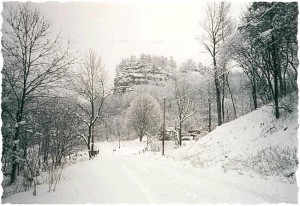
9 new winter themed additions have been added to the Willows Wept Review. I am not usually a fan of themes. To me themed writing feels contrived and meaningless kind of like a forced shit after eating too much cheese.
I read all the posted pieces . Nothing felt contrived. Everything was vibrant.
Specifically this piece by Brandi Wells:
I’m ending the post on a high note. There is no where else to go from here.
February 5th, 2009 / 2:29 pm
New & Massive: The Rumpus

Schwartz is one of those writers who you’ve probably never heard of, and who, but for the dice of fate might just as easily have become a household name. USA Today named her first book of stories, Imagine a Great White Light, one of the best books of the year of 1991. (Actually, if you think about it, USA Today talking about a book of stories at all is amazing in and of itself–if it was tougher than a mountain-climb then, it’d probably take two miracles now.) Anyway, her debut novel, Lies Will Take You Somewhere–which in a just world would never have had to be described as “posthumous”–is out this month from Etruscan Press. In “What Happened To Sheila,” her husband Dan Chaon guides us through his wife’s life and works, and recounts for us the delightful story of their courtship, when he was “an undergraduate student, and she was a first time teacher, straight out of Stanford…” Chaon writes: “I know I’m only one of many of her students who fell madly in love with her, but I happened to be lucky.”
It’s an incredible story, and it seems to me emblematic of the kind of stellar, unique work that The Rumpus is committed to publishing, so after you click over there and read it, click back over this way and read my Q&A with editor Stephen Elliott, which you can find right after the jump. We talk about the impetus for founding the site, what’s missing from the mainstream blogosphere, and the challenges that promising web-projects like his (and ours!) face and how to overcome them or die trying. Plus, you know, other awesome stuff too.
Power Quote: M.L. Rosenthal

Behind much of [Edward Arlington] Robinson’s work, in both its more successful and its less successful aspects, lies a deeply American obsession with the theme of failure: failure of a career, failure of a social class or a society, failure of a needed meaning to sustain itself–and, finally, the inevitable failure of life to resist death’s encroachment. Remembering Eliot’s motifs of sexual and spiritual failure and Pound’s savage complaints at a culture’s failure to realize itself, we see how much those poets have in common with Robinson after all. ‘When we think of America,’ said D.H. Lawrence in his introduction to Edward Dahlberg’s novel Bottom Dogs, ‘and of her huge success, we never realize how many failures have gone, and still go to build up that success.’
– “Rival Idioms: The Great Generation” (being Chapter Five of The Modern Poets: A Critical Introduction)
**BONUS**
Read Robinson’s “Miniver Cheevy”
Read Robinson’s “Richard Corey”
Read Lawrence’s “Last Lesson of the Afternoon”
Enough failure for one day? Ready for earthy pagan Modernist resurrection sex?
Read Lawrence’s “New Heaven and Earth”

Daily affirmation.
‘I eat books’
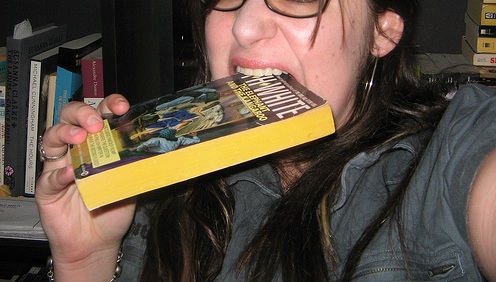
Scott Esposito has begun posting at Conversational Reading a series of interviews with various publishers of small presses. Here’s what he has to say about the series:
In order to get some a picture of how publishing beyond New York’s giants is faring, I’m going to be conducting interviews with presses and publishing them here. I’ll be interested to see if they’re feeling the pain every bit as much as the big guys, or if their different publishing models are yielding different results. I’ll also want to see what they’re doing to stay competitive in this market and if they think the recession is going to shake up publishing at large.
So far he’s heard from Declan Spring of New Directions, Fred Ramey of Unbridled Books, and Richard Nash of Soft Skull/Counterpoint.
The series can be read at this link.
I like “I Am a Cat” a lot
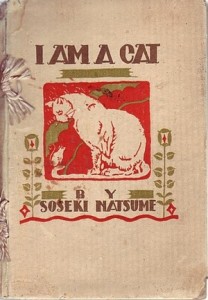 I Am a Cat was written by japanese author Natsume Soseki in 1906. Its clear, taut prose is notably ‘modern’ for its time. I was affected by its writing more than other books — not just in part due to the unlikely cat narrator — but what it taught me: the best satire is born of compassion. After the following excerpts, I will try to explain what I mean.
I Am a Cat was written by japanese author Natsume Soseki in 1906. Its clear, taut prose is notably ‘modern’ for its time. I was affected by its writing more than other books — not just in part due to the unlikely cat narrator — but what it taught me: the best satire is born of compassion. After the following excerpts, I will try to explain what I mean.
Excerpt:
I hear that, on occasion, this species catches, boils, and eats us. However as at that time I lacked all knowledge of such creatures, I did not feel particularly frightened. I simply felt myself floating in the air as I was lifted up lightly on his palm.
This is early on in the book, where Soseki quickly establishes the satirical tendency throughout the novel. There is a certain rationality that comes easily for the cat, who gains the reader’s authority.
On hearing the front bell (after the break):
New Poets Off Poetry up at Coldfront

Maybe some of you remember Poets Off Poetry, Jackie Clark‘s continuing mission to get poets to talk about something else for a change–namely music–which used to run on This Recording but then stopped. Well it didn’t die, it only moved to Coldfront, where it has been thriving. The latest installment features my–and Jackie’s–former teacher and much-esteemed buddy, the inimitable Mark Bibbins (whose website seems to be MIA at present, and whose forthcoming collection from Copper Canyon, The Dance of No Hard Feelings, doesn’t seem to have an Amazon page yet, so, uh, sit tight I guess). In his P.O.P., Bibbins talks about My Bloody Valentine, Goldfrapp, Portishead, The Verve (who are back, apparently), Stereolab, Deerhunter, and many more musicians you either have or haven’t heard of. Ample YouTube embeds for illustration make this a must-read and potentially a slow load, so why don’t you click on it now, go pour a coffee, then come back and settle in for a real good time. [JUSTIN: that last sentence begins as a question but ends with a period. What gives? -ED. / BLAKE: By the end of the sentence I realized it was an imperative, not an interrogative, and I want the readers to experience that transformation with me. -JT]
Read “Tatooine Sunset: An Assembly of Last Year’s Fantastic Things” by Mark Bibbins.
Vicarious MFA: Note Taking

The dreaded blank page.
Discussed in Non/Fiction:
A Lie That Tells the Truth: Memoir and the Art of Memory by Joel Agee
A great essay about the memoir in the modern age that anyone working in fiction or nonfiction should read. (What are un-bendable facts? Where does lying end and art begin? Fact ≠ Truth.)
We talked about how much we liked Another Bullshit Night in Suck City * and/or what sections were brilliant and which were just myehh. Most were brilliant.
One of the assigned readings that we didn’t talk about was Jo Anne Beard’s Werner. Excellently strange essay. Would have liked to hear someone’s opinion on it. (It’s in the Best American Essay edited by DF Wallace if you’ve got that on your bookshelf and want to read it and report back to me. No pressure.)
Writing Assignment: Write a short piece (or essay or story) that responds to the title, “The Use of Nonfiction.”
Read By 2/9: Needs by George W.S. Trow, Captivity by Sherman Alexie, “…and nobody objected” by Paul Metcalf, and A Tin Butterfly by Mary McCarthy (a selection from Memories of a Catholic Girlhood.)
Lethem’s Masterclass was full of zingers. Lots of furious note taking and laughter.
Here’s an idea: What if Wikipedia means the death of post-modern uncertainness? What if Wikipedia necessitates the end of the novel of facts, the novel that is freckled with reportage? Lethem said something to the effect of “putting a fact in your novel is almost a wasted line,” considering that anyone can look up almost anything at any time on the internet.
We mostly talked about Terry Castle’s My Heroine Christmas and The White Album by Joan Didion. Both awesome.
Read by 2/9: Out of Sheer Rage by Jeff Dyer, which looks fun because I took a killer DHL survey my first semester here and I am still digesting


